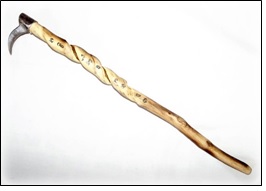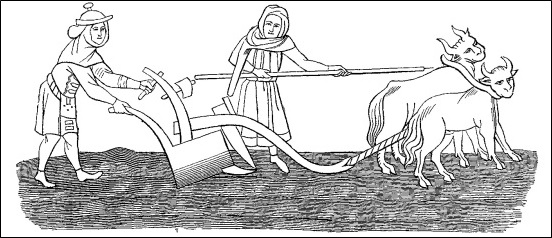There have been times and there will be times when the Lord is speaking to us as a church corporately. The Pastoral Leadership Team will be looking at various formats to be able to share messages to the corporate body. This email will serve as one medium that we will try. I don't want to set up any expectation that this will be something that will be weekly or even monthly but we want to give this a try and then get some feedback from you as to its effectiveness.
In our prayer meeting last Thursday morning at The Centre of Hope we were praying, and I sensed the Lord saying to me “Stop kicking against the goads”. The scriptural reference for this is taken from Acts 26:14. Interesting fact, it turns out that this reference to “kicking against the goads” may in fact be a reference to a quote from Pindar, an ancient Greek poet, “To bear lightly the neck’s yoke brings strength but kicking against the goads is the way of failure.” Pindar came from Thebes in central Greece and this quote was written more than 500 years before the event of Paul’s conversion. This wise phrase was likely as common as some of the things we hear today like: “The squeaky wheel gets the grease”; “When the going gets tough, the tough get going.”; “Two wrongs don’t make a right.” and one of my favourites “People who live in glass houses should not throw stones.”
Goad is not a term we use very often, however, it is used to describe people who provoke other people. In Bible times a goad, usually referred to as an ox goad was a wooden tool, approximately eight feet long, fitted with an iron spike or point at one end. This was used to spur oxen as they pulled a plow or cart. It often had an iron scraper at the non-pointed end to clear clods of earth from the plowshare when it became weighed down. Here’s a picture of one I found online and how is it was used:
When an ox was poked with a goad, its response was sometimes to kick out at it in resistance. Naturally, kicking back at the goad was futile, not to mention painful. Jesus used this as an analogy when He confronted Saul on the Damascus Road (Acts 26:14). Jesus asked Saul why he was persecuting Him and reminded him that, just as an ox that kicks against the pricking of the goad can hurt itself, Saul’s continued resistance to the gospel would only result in danger to himself. Saul wisely submitted to the goad and yielded himself to Christ.
So how does this apply to our context I asked the Lord. He then reminded me of a picture I saw during a presentation that was given at a conference I attended last fall. This is the image:
I felt the Lord was saying that he longs for our obedience. In our context, I don’t believe the Lord is trying to motivate us by poking us with a sharp stick to do what he tells us but that the stick is being held firmly in place, and for good reason, to try and keep us from going off course. You may be asking yourself how does this apply to being obedient?
Many times, in our lives God gives us words of instruction that may relate to things we need to change in our own lives or things he asks us to do for others or for himself. If we walked in complete obedience all the time our journey would look like the bottom image, us going in a straight line. Unfortunately for us, our journey more often looks like the top image. God’s grace enables us to still arrive at our destination, but we really do take the long painful way there. I can’t remember where I heard this, but it was said that “every analogy eventually falls apart”, so I won’t try and extend this too far. I guess what I am trying to say is that God wants us to walk in obedience and when we disobey or delay or divert, we are really hurting ourselves and that is not what God wants. He wants what is best for us, he loves us more than we can comprehend, and he loves us enough to know what is best for us. Our biggest failing is that we fail to trust him, in fact many of us fail to trust anyone but ourselves. To not trust is to kick against the goads. Let’s remember this analogy, this word from the Lord to motivate us to love, trust and obey our Father in all that he asks of us.



